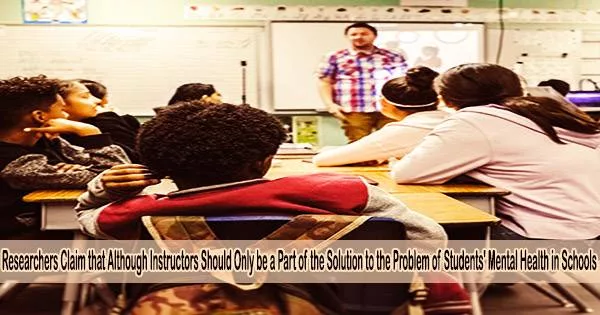It makes sense to deal with young people on mental health issues in schools. This is significant because one in seven young Australians has a mental ailment, according to statistics. This encompasses problems including complicated trauma, anxiety, sadness, and psychological anguish.
However, because of the staff-to-student ratio, it can be quite challenging for pupils to reach school counselors and psychologists. In NSW public schools, for instance, there is roughly one counselor for every 750 kids.
As a result, teachers are frequently assumed to be primary mental health practitioners. This has especially been the case ever since the pandemic began.
But what is reasonable to expect of teachers when it comes to students’ mental health?
Training is patchy
The types of mental health services offered by schools or the people who carry out this function vary widely.
Many schools have counselors or psychologists on staff, but some may also have access to Department of Health or non-government personnel who could visit the school to deliver a particular program or offer specialized help to students who are at risk. But availability is a huge issue.
Meanwhile, there is no consistent mental health training for new teachers. Numerous teacher preparation programs don’t specifically mention mental health. If it is, it frequently takes place as a single day of instruction or occasionally is covered as part of other subjects. As opposed to needs that have been recognized, a lecturer’s interest in mental health frequently determines the level of instruction that a student receives.
Even then, promoting student wellbeing is frequently the main goal rather than dealing with mental illness.
There are professional development training and resources on mental health for existing teachers. But again, these are not consistently applied.
Teachers are not confident
It is not unexpected that, while taking mental health seriously, many teachers lack confidence in their ability to manage their students’ mental health given inconsistent and maybe insufficient training.
In one 2017 study in the United States, almost 50% of teachers reported they had received inadequate mental health training, and 85% indicated they would like further training in mental health issues.
When addressing the mental health issues of their clients, even seasoned mental health practitioners report feeling incompetent.
Therefore, if trained teachers in the field of mental health feel this way, we should carefully rethink our expectations of them.
What can teachers do?
Teachers do of course have a valuable role in supporting student mental health. But this needs to occur in the context of teaching.
They can achieve this by creating a welcoming, encouraging learning atmosphere that caters to each student’s unique needs and abilities. By giving kids real opportunity to thrive in the classroom, teachers can help students develop positive identities and senses of self-worth. Teachers can create healthy peer interactions and build strong ties with their students.
It is important teachers know how to identify students with possible mental health problems as well as being aware of potential referral options (noting lack of availability is an issue). It is also important teachers develop and maintain open and honest communication with caregivers.
What more can be done?
Clearly, much more needs to be done around mental health in schools. It makes appropriate to make more financing and training provisions for school psychologists and counselors. We should also examine ways of better integrating mental health services like the Department of Health and Headspace in schools.
However, with supply and recruitment difficulties these are not straight forward solutions.
There is an urgent need for a uniform national approach to the teacher preparation program’s mental health curriculum.
It is essential to clarify the role of instructors in school-based mental health services in order to better manage expectations and help kids.
Teachers are under the category of helping professions and have a strong desire to serve their students in any manner they can. They must be prepared to offer learning support that can take mental health into account.
Policymakers and school communities should keep in mind, meanwhile, that instructors are not educated as mental health professionals.
















